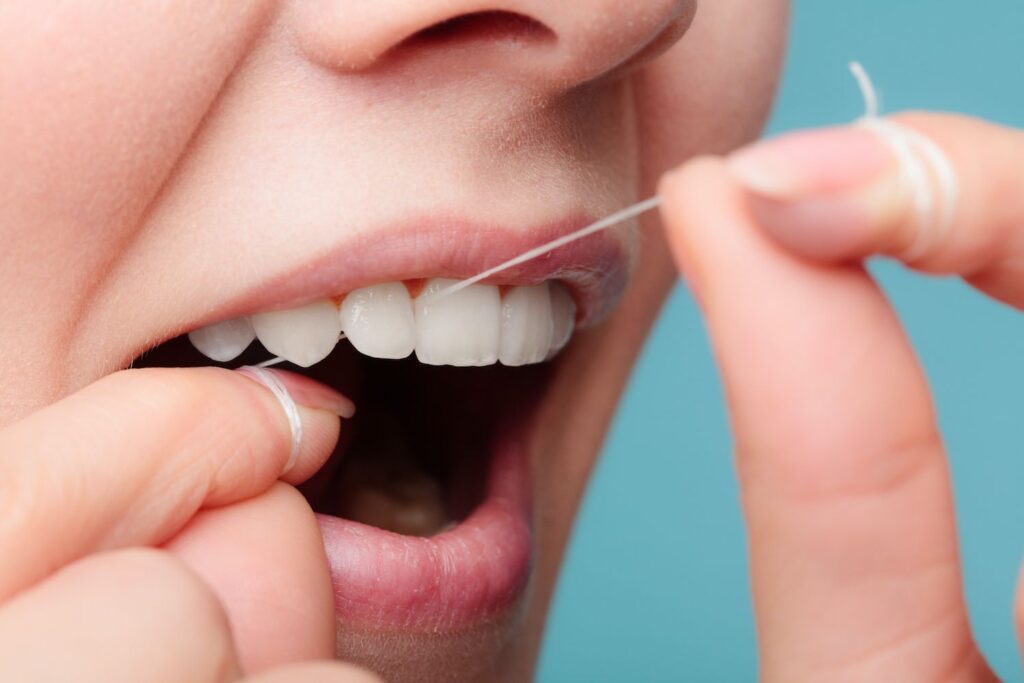When it comes to oral hygiene, brushing our teeth takes center stage. However, flossing often gets neglected, despite its crucial role in dental health. Flossing reaches the areas that brushing alone cannot, making it an essential part of our daily oral care routine. This means that you need to make time to floss every day.

Beyond Brushing
While brushing your teeth twice a day is vital, it only cleans the surfaces of your teeth. Conversely, flossing goes beyond the tooth surfaces and reaches the tight spaces between your teeth and along the gum line. These areas are prone to plaque and food particle buildup, which brushing alone cannot effectively remove.
Plaque and Tartar Prevention
Plaque is a sticky film of bacteria that forms on our teeth throughout the day. If not removed, it can harden into tartar, leading to gum disease and tooth decay. Flossing helps disrupt the formation of plaque and prevents it from hardening into tartar. It is crucial to remove plaque before it causes further dental issues.
Guarding Your Gums
Flossing plays a vital role in healthy gums. The act of flossing removes plaque and bacteria from the gum line. This prevents gum inflammation and infection. Gum disease can lead to gum recession, tooth loss, and other serious health issues. Flossing helps keep your gums healthy and contributes to a strong foundation for your teeth.
Fresh Breath
Halitosis, or bad breath, can be embarrassing. However, it may indicate underlying dental issues. Food particles trapped between teeth can cause foul-smelling breath. Regular flossing helps remove these particles. This reduces the potential for bad breath and promotes fresher breath.
Shielding Your Teeth
Flossing is a powerful weapon against tooth decay. When plaque is left undisturbed between teeth, it releases acids that erode tooth enamel. This leads to cavities. When you floss daily, you remove plaque and minimize the risk of cavities. As a result, you can keep your teeth strong and healthy.
Protection Against Gum Recession
Gum recession occurs when the gum tissue pulls away from the teeth, exposing the tooth roots. This can lead to tooth sensitivity and an increased risk of decay. Regular flossing helps prevent gum recession by removing plaque and bacteria along the gum line.
Enhanced Overall Health
Oral health is closely linked to overall health. Research shows that gum disease is closely associated with several systemic conditions. This can include heart disease, diabetes, and respiratory infections. Flossing can reduce the risk of these health issues and contribute to your overall well-being.
Mastering the Art of Flossing
To maximize the benefits of flossing, it’s important to use the proper technique. Start with a piece of dental floss approximately 18 inches long. Gently glide the floss between your teeth, wrapping it in a C-shape around each tooth and moving it up and down. Be sure to floss both sides of each tooth and along the gum line. Remember, gentle and consistent flossing is more effective than aggressive flossing, which can harm your gums.
